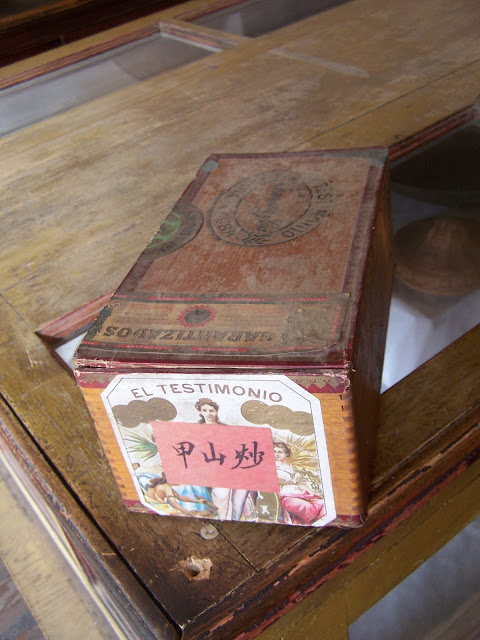穿山甲
By Mai Wah board member Richard Gibson. Translation of artifact label by Siwen Liu; research by Curator Janna Norby.
The pangolin scales in the Wah Chong Tai Mercantile are from the closing of the store in the 1940s when Charlie Bovey bought the contents and took everything to Nevada City. Most of the boxes and packages still hold their original contents.
 |
| click to enlarge |
Pangolin scales (chuan shan jia) in traditional Chinese medicine are thought to disperse blood stasis, unblock menses, and promote lactation. They supposedly reduce swellings and enhance discharge of pus from boils. Scales such as those formerly sold in the Wah Chong Tai Mercantile would have been baked, then ground up to a powder and simmered with water to prepare a decoction.
Pangolin photo via Wikipedia (public domain). Artifact photos by Richard Gibson. The Wah Chong Tai Mercantile exhibit is made possible by a loan from the Montana Heritage Commission, and significant financial support from the Confucius Institute of the University of Montana.


